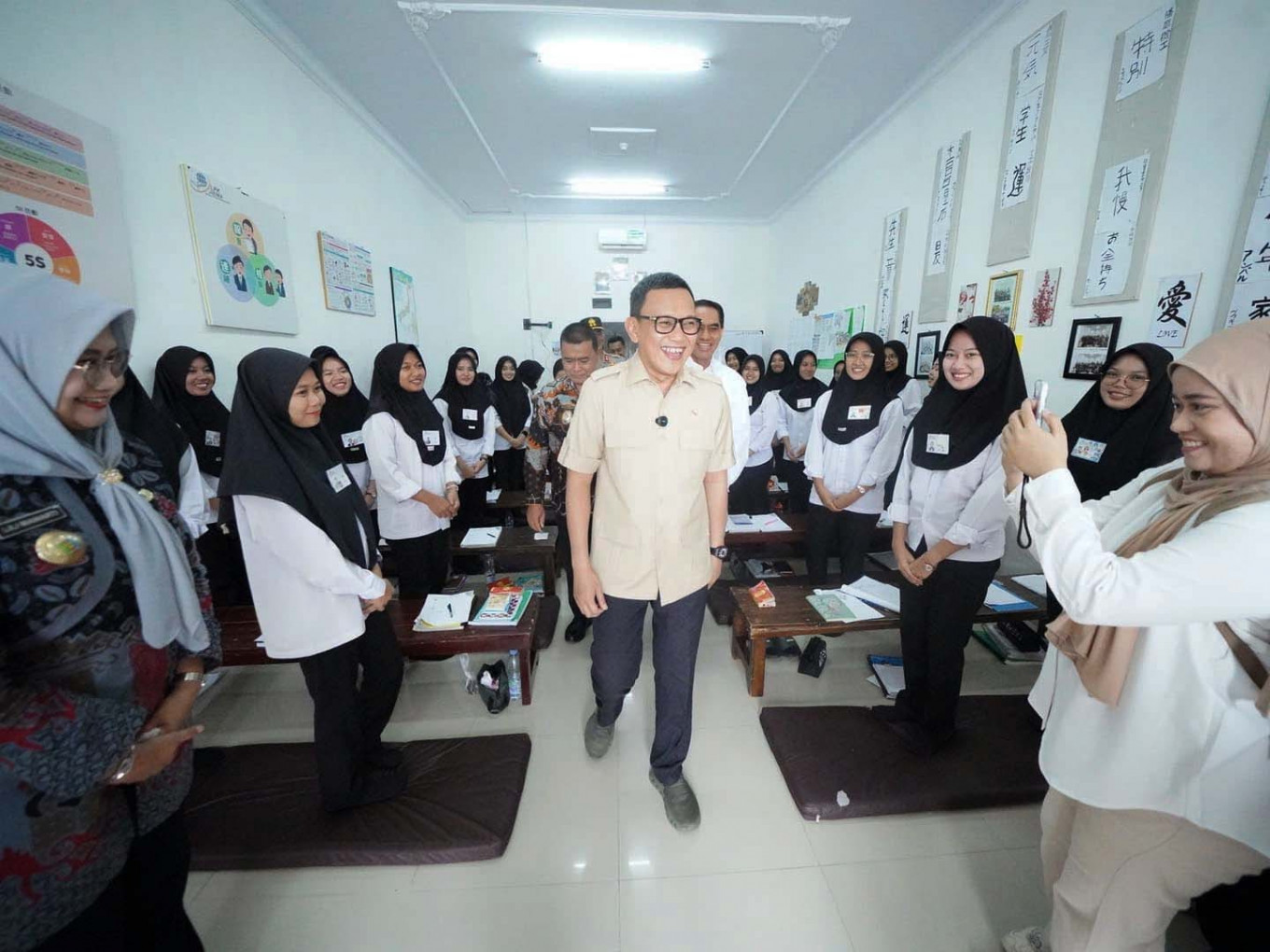Popular Reads
Top Results
Can't find what you're looking for?
View all search resultsPopular Reads
Top Results
Can't find what you're looking for?
View all search resultsMinister warns migrant workers against ‘cheap labor’ traps in Japan
The migrant workers protection minister urged prospective Indonesian interns to be wary of exploitative schemes under Japan’s Technical Intern Training Program during a visit to the vocational training center in Lampung.
Change text size
Gift Premium Articles
to Anyone
M
igrant Workers Protection Minister Abdul Kadir Karding warned prospective interns to be cautious of Japan's so-called “cheap labor” schemes.
“There are set times for internships and employment. Don’t let an internship drag on too long when in fact you’re already working,” Karding said, as quoted by kompas.com on Thursday. The program comes with a visa which is only valid for three years.
In addition to warning the prospective workers, the minister also praised the training center.
“I saw how the training center prepares our young people for internships and subsequent employment in Japan,” he said, as quoted by the Antara news agency.
“Overall, I think it’s quite good, they receive about six months of intensive training.”
Originally, the internship system was designed to help foreign workers acquire technical skills and technological knowledge in Japan to be implemented in their countries of origin.
In reality, however, the program is often used as a solution to Japan’s shortage of unskilled labor.
Even so, Karding reminded interns heading to Japan to uphold the country’s good reputation. He also reminded the workers to uphold the nation’s good name, stressing that misconduct by even one individual could impact the quota for future deployments.
Future Indonesian migrant workers were also advised to continuously improve the quality of their work and to persevere while working abroad.
The Indonesian Embassy in Tokyo announced in January that the Japanese government needed 820,000 foreign workers between 2024 and 2029.
Indonesian workers were projected to fill some 20 to 30 percent of the available positions, or between 164,000 and 246,000 workers, the embassy said, as quoted by cnbcindones.com in January.
Other than the technical intern training program, the workers can also apply through the specified skilled workers scheme, especially for low-skilled, blue-collar workers.
Indonesia is expected to send between 32,000 and 49,000 workers per year.









